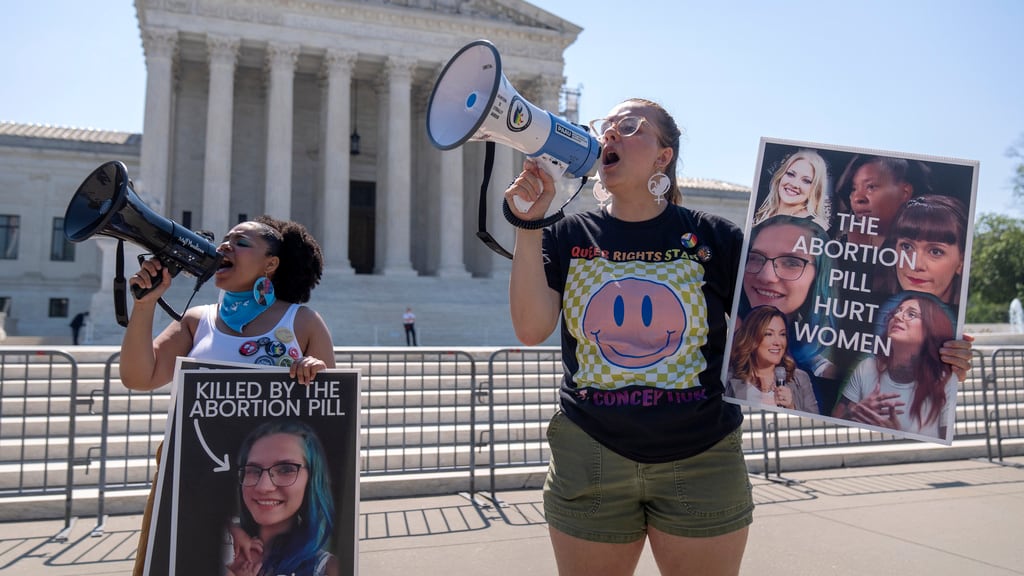The Supreme Court of the United States rejected on Thursday restricting access to the abortion pill mifepristone, which means that although it will not have unrestricted access, it will continue to be available in the country.
PUBLICIDAD
Unanimously, the court ruled that the group of anti-abortion doctors questioning the Food and Drug Administration's (FDA) decisions to expand access to the pill lack standing to sue. As a result, their lawsuit will be dismissed.
PUBLICIDAD
What will happen now after the dismissal?
By dismissing the case, the Supreme Court avoided delving into the legal issue of whether the FDA acted lawfully in lifting several restrictions to access the pill, including one that allowed the drug to be obtained by mail, meaning the same issues could come back to the court at another time.
The drug has been authorized in the United States since 2000 and more than 5 million people have used it since then.
What is Mifepristone?
Mifepristone blocks a hormone called progesterone, which helps the body maintain the inside of the uterus so that pregnancy can continue. A healthy uterine lining is what sustains a fertilized egg, an embryo, and a fetus. Without progesterone, the uterus will expel its contents.
Women who undergo a medication abortion take mifepristone and then, after 24 to 48 hours, take misoprostol. This medication helps empty the uterus through heavy bleeding and muscle contractions.
Medications can be taken as soon as someone finds out they are pregnant and up to 70 days or less from the first day of their last period.
